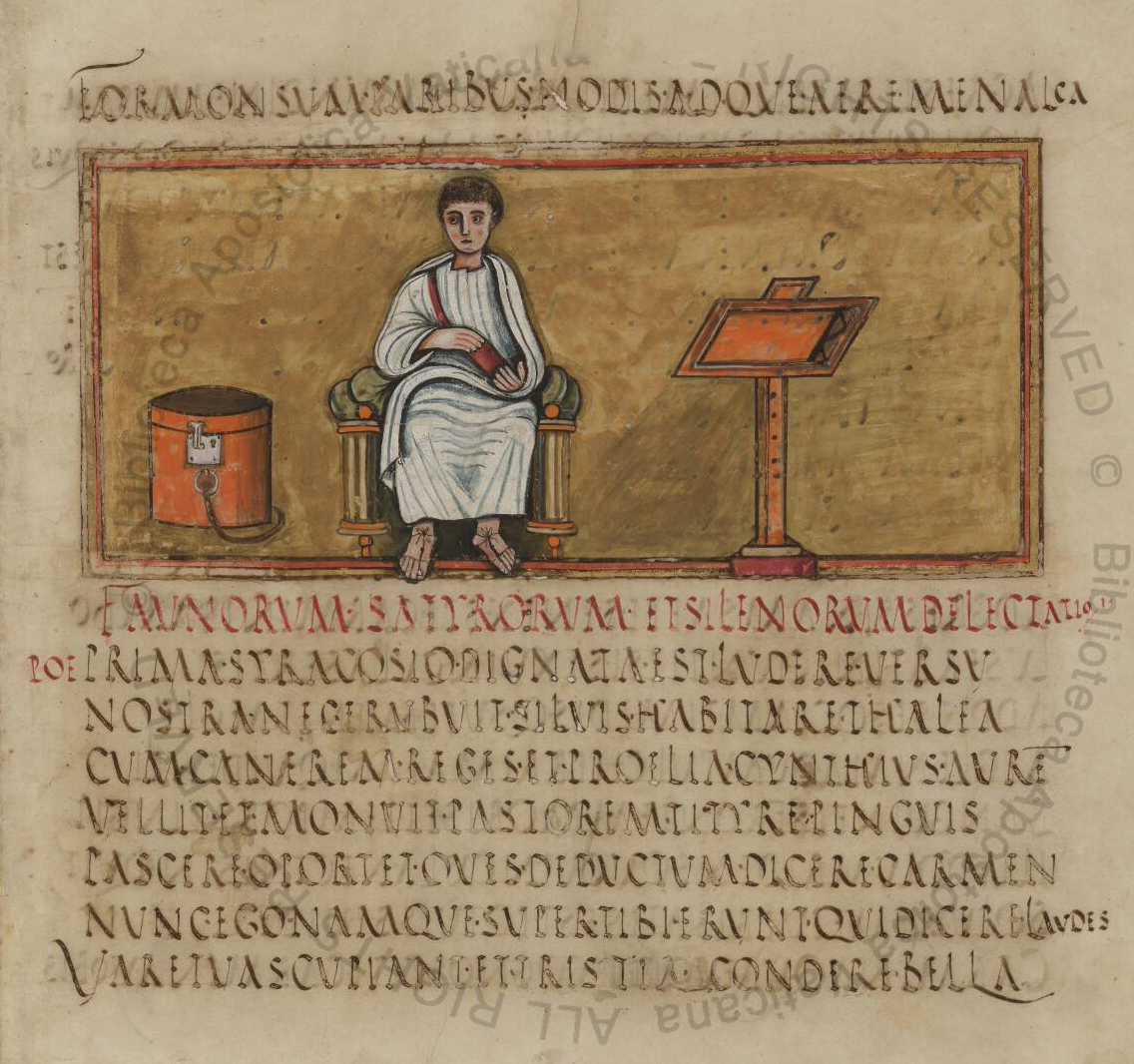From (Ps.) Longinus On the Sublime, 9.11-13
“Nevertheless, all through the Odyssey, which must be examined for many reasons, Homer reveals that as great inspiration fades away, storytelling becomes the dominant attribute of old age. For it is clear in many ways that this epic was composed second. Throughout the Odyssey we find episodes modeled on scenes from the Iliad, and, by Zeus, he apportions his heroes grief and misery as if these tales were long already known. The Odyssey is nothing other than an epilogue to the Iliad:
There lies fierce Ajax; here lies Achilles
There likes Patroklos, an advisor equal to the gods,
There lies my own dear son. (Od. 3.109-111)
The cause of this fact, I imagine, is that when the Iliad was being written at the peak of his strength, Homer imbued the whole work with dramatic power and action; when he was composing the Odyssey, however, he made it more of a narrative, as appropriate for old age. For this reason, you can compare the Odyssey’s Homer to a setting sun: the magnitude remains without its power. Since, in it, he no longer preserves the same power of the Iliad, that overwhelming consistency which never ebbs, nor the same rush of changing experiences, the variety and reality of it, packed full with things from true experience.
It is as if the Ocean were to withdraw into itself, quietly watching its own measure. What remains for us is the retreating tide of Homer’s genius, his wandering in storytelling and unbelievable things. When I claim this, I am not forgetting the storms in the Odyssey and the events placed near the Kyklopes and elsewhere—I am indicating old age, but it is still Homer’s old age. And, yet, the mythical overpowers in every one of these scenes.”
δείκνυσι δ’ ὅμως διὰ τῆς ᾿Οδυσσείας (καὶ γὰρ ταῦτα πολλῶν ἕνεκα προσεπιθεωρητέον), ὅτι μεγάλης φύσεως ὑποφερομένης ἤδη ἴδιόν ἐστιν ἐν γήρᾳ τὸ φιλόμυθον. δῆλος γὰρ ἐκ πολλῶν τε ἄλλων συντεθεικὼς ταύτην δευτέραν τὴν ὑπόθεσιν, ἀτὰρ δὴ κἀκ τοῦ λείψανα τῶν ᾿Ιλιακῶν παθημάτων διὰ τῆς ᾿Οδυσσείας
ὡς ἐπεισόδιά τινα [τοῦ Τρωικοῦ πολέμου] προσεπεισφέρειν, καὶ νὴ Δί’ ἐκ τοῦ τὰς ὀλοφύρσεις καὶ τοὺς οἴκτους ὡς πάλαι που προεγνωσμένοις τοῖς ἥρωσιν ἐνταῦθα προσαποδιδόναι. οὐ γὰρ ἀλλ’ ἢ τῆς ᾿Ιλιάδος ἐπίλογός ἐστιν ἡ ᾿Οδύσσεια·
ἔνθα μὲν Αἴας κεῖται ἀρήιος, ἔνθα δ’ ᾿Αχιλλεύς,
ἔνθα δὲ Πάτροκλος, θεόφιν μήστωρ ἀτάλαντος·
ἔνθα δ’ ἐμὸς φίλος υἱός.
ἀπὸ δὲ τῆς αὐτῆς αἰτίας, οἶμαι, τῆς μὲν ᾿Ιλιάδος γραφομένης ἐν ἀκμῇ πνεύματος ὅλον τὸ σωμάτιον δραματικὸν ὑπεστήσατο καὶ ἐναγώνιον, τῆς δὲ ᾿Οδυσσείας τὸ πλέον διηγηματικόν, ὅπερ ἴδιον γήρως. ὅθεν ἐν τῇ ᾿Οδυσσείᾳ παρεικάσαι τις ἂν καταδυομένῳ τὸν ῞Ομηρον ἡλίῳ, οὗ δίχα τῆς σφοδρότητος παραμένει τὸ μέγεθος. οὐ γὰρ ἔτι τοῖς ᾿Ιλιακοῖς ἐκείνοις ποιήμασιν ἴσον ἐνταῦθα σῴζει τὸν τόνον, οὐδ’ ἐξωμαλισμένα τὰ ὕψη καὶ ἱζήματα μηδαμοῦ λαμβάνοντα, οὐδὲ τὴν πρόχυσιν ὁμοίαν τῶν ἐπαλλήλων παθῶν, οὐδὲ τὸ ἀγχίστροφον καὶ πολιτικὸν καὶ ταῖς ἐκ τῆς
ἀληθείας φαντασίαις καταπεπυκνωμένον· ἀλλ’ οἷον ὑποχωροῦντος εἰς ἑαυτὸν᾿Ωκεανοῦ καὶ περὶ τὰ ἴδια μέτρα †ἐρημουμένου τὸ λοιπὸν φαίνονται τοῦ μεγέθους ἀμπώτιδες κἀν τοῖς μυθώδεσι καὶ ἀπίστοις πλάνος. λέγων δὲ ταῦτ’ οὐκ ἐπιλέλησμαι τῶν ἐν τῇ ᾿Οδυσσείᾳ χειμώνων καὶ τῶν περὶ τὸν Κύκλωπα καί τινων ἄλλων, ἀλλὰ γῆρας διηγοῦμαι, γῆρας δ’ ὅμως ῾Ομήρου· πλὴν ἐν ἅπασι τούτοις ἑξῆς τοῦ πρακτικοῦ κρατεῖ τὸ μυθικόν.
While Longinus sees many moments in the Odyssey as modeled after the Iliad, others have suggested that the Odyssey does not refer to the main events in our Iliad. [This is called Monro’s Law.] Instead, it refers generally to events which occur outside the Iliad in the Trojan War in general. Rather than indicating that the Iliad and the Odyssey did not know of one another, many interpreters have instead suggested that such nonconvergence is pointed and indicative of deep mutual knowledge.
Like this:
Like Loading...


